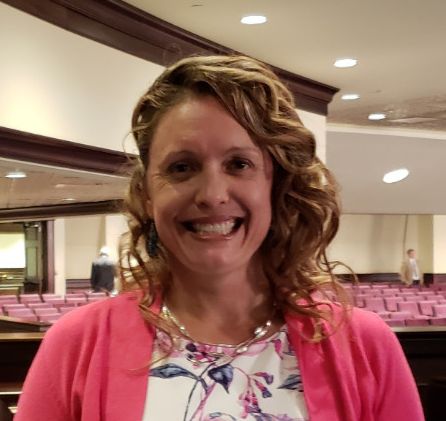Managing a team is complex and empowering, but becomes difficult when factoring in the intricacies of team relationships. When a team member is charging towards a promotion, it can be an exciting and delicate situation for managers. This situation is especially challenging to navigate when a manager has a good relationship with the individual, but they are not prepared to receive a promotion. Determining how to support their ambition while simultaneously managing their expectations for a promotion requires immense consideration.
Creating a structured plan in advance can help managers feel equipped to handle a situation in which they are unable to promote a motivated team member. Workshopping methods of communicating empathy, conveying constructive feedback, setting realistic expectations, creating an actionable plan, and providing continued support will set managers up for success when leading these challenging conversations. With appropriate mechanisms, managers can communicate promotion decisions effectively while also supporting employees' growth.
1. Objective Assessment
Prior to relaying the news that a team member will not receive a promotion, conduct a clear and objective assessment of their performance. Considering the employee’s current performance, skills, and readiness for promotion can focus the assessment and work to eliminate bias due to relationships with the employee. Regardless of personal relationships with the team member pursuing the promotion, it is important to evaluate tangible contributions they make to the team to ensure a comprehensive understanding of their performance.
This objective assessment will prepare managers for their conversation with the employee seeking a promotion. Being able to recognize specific areas of strengths and weakness will demonstrate to the employee that careful consideration was given to this decision. Use this step to provide concrete examples during the conversation to help the employee understand the decision from an outside perspective.
2. Conversation Preparation
After establishing a complete understanding of the employee’s contributions, take steps to determine the logistics of the conversation. Managers may find it beneficial to communicate the news that a promotion was received in an email prior to a one one-on-one conversation as this can help to mentally prepare their employee for the conversation. Other managers prefer to communicate directly with their team member through a face-to-face conversation. Regardless of how the news is broken, a one-on-one conversation is a necessary element of communicating with the employee.
When planning the message for this conversation, outline key points to be addressed and reference specific examples. Consider how the team member may react to these points and empathetic responses to their emotions to ensure a productive conversation.
3. Communicate Empathetically
When beginning the conversation, acknowledge their hard work and strong ambition. Make sure to express appreciation for their contributions and the value they provide for the team. Creating a positive environment early on will set a supportive tone for the conversation. Being empathetic allows the employee to feel understood and valued which is vital for keeping this conversation in a constructive direction. With a compassionate approach, the disappointment from not receiving a promotion can be eased and foster open dialogue.
4. Provide Constructive Feedback
After establishing a positive tone, provide constructive feedback to communicate why the promotion is not on the table at the moment. It is important to be honest about the assessment of their promotion readiness while also considerate of their feelings. Since they were eager for a promotion, they likely believe the are prepared for the role. Ensuring that they understand areas that need to be focused on before they are ready for the promotion can help them understand the decision.
While communicating honest feedback, incorporate specific examples of areas that need improvement or further development. Any skills, behaviors or achievements that are necessary to receive the promotion should be addressed. Along with addressing these deficiencies, frame them as growth opportunities. Using growth focused word choice can maintain a forward focused and positive conversation.
5. Develop an Action Plan
After discussing areas for improvement, set realistic expectations and
actionable steps for a promotion timeline. Be transparent about the company’s promotion criteria and associated timelines. Explain why their current timeline may not be achievable and outline specific steps needed to fulfill promotion requirements.
Work with the employee to create a concrete action plan with steps needed to properly prepare them. Include specific goals, a realistic timeline, resources, and regular progress check ins. Developing a clear path forward gives them a better sense of direction and demonstrates support for their aspirations.
6. Maintain Support
Consistent with developing an action plan, to support employee’s growth provide ongoing guidance and encouragement. Dedicate time for regular check ins and implement mechanisms for consistent feedback to continue their progress and address challenges. Encourage the employee to reach out with any concerns and questions that arise on their journey towards their goals.
In addition to maintaining a strong presence through check-ins and feedback, a key component of providing support comes from positive reinforcement. Recognize and celebrate their achievements throughout their journey to increase motivation and engagement. Maintaining support creates a stronger relationship with the employee and actively increases their chances of success.
Regardless of preparation, managers may receive pushback from their ambitious employees. Given their strong pursuit of a promotion, they may feel disappointed or defensive. Advanced preparation for these reactions and methods to respond with empathy are vital for ensuring a productive conversation. Acknowledge their feelings, and reiterate support for their goals and continued growth. As a manager, maintaining composure and professionalism are also key during these difficult conversations. Avoid being drawn into emotional confrontation and steer the conversation back towards actionable steps.
Giving constructive feedback to an eager employee seeking a promotion is a delicate task that requires preparation, empathy, and transparency. By objectively considering the situation, communicating empathetically, and developing growth strategies, managers can help guide employees to success while maintaining a strong relationship. While achieving their current goal of being promoted wasn’t attainable, these conversations can empower them to continue to grow in their pursuit of longer-term career aspirations.











